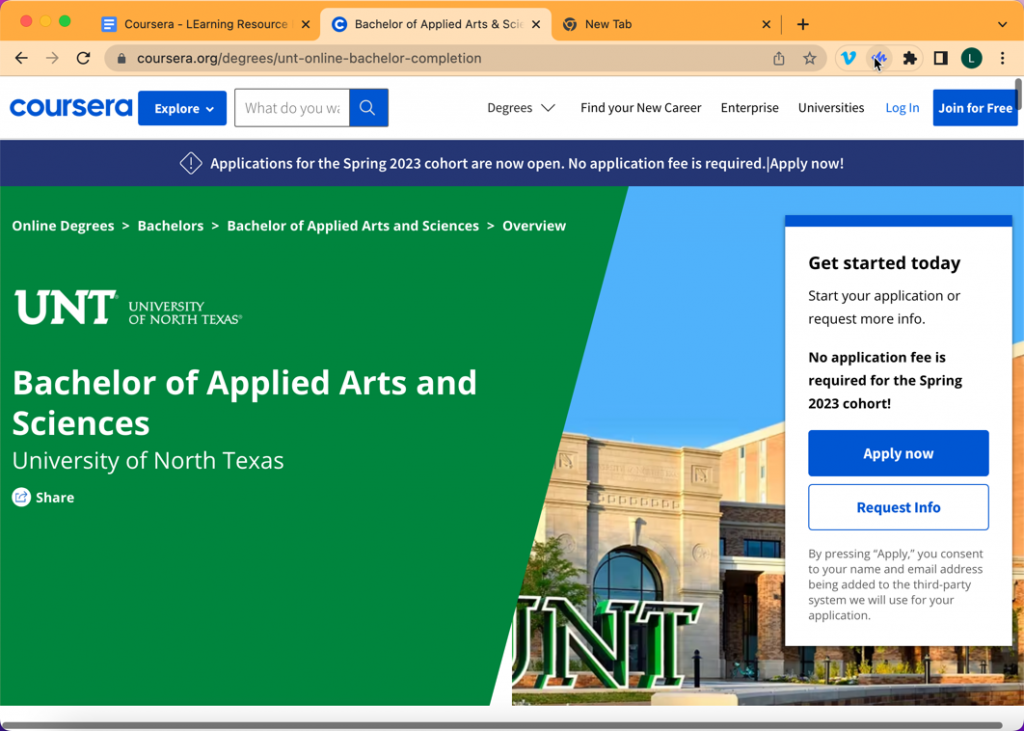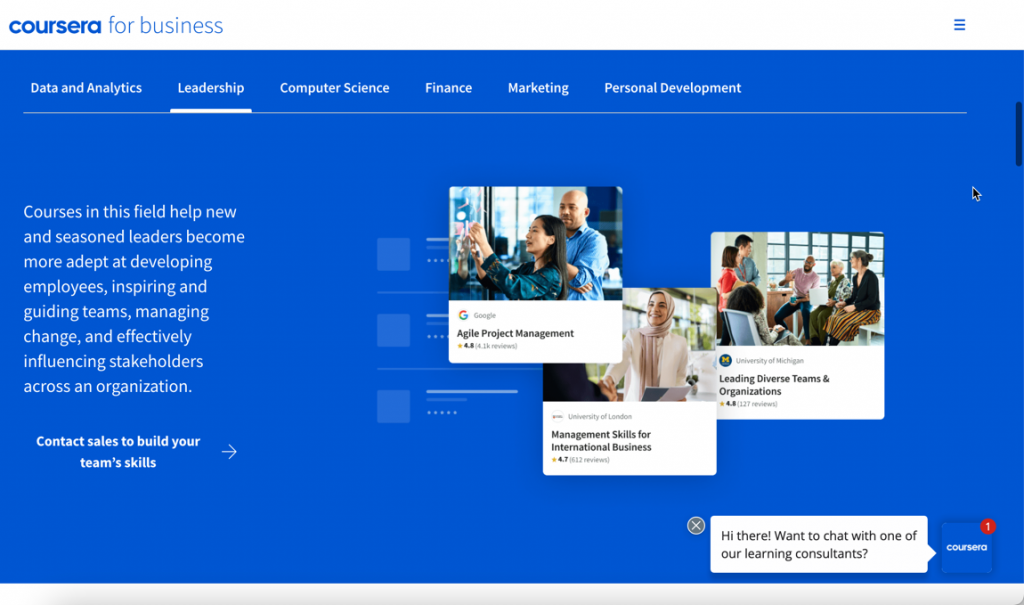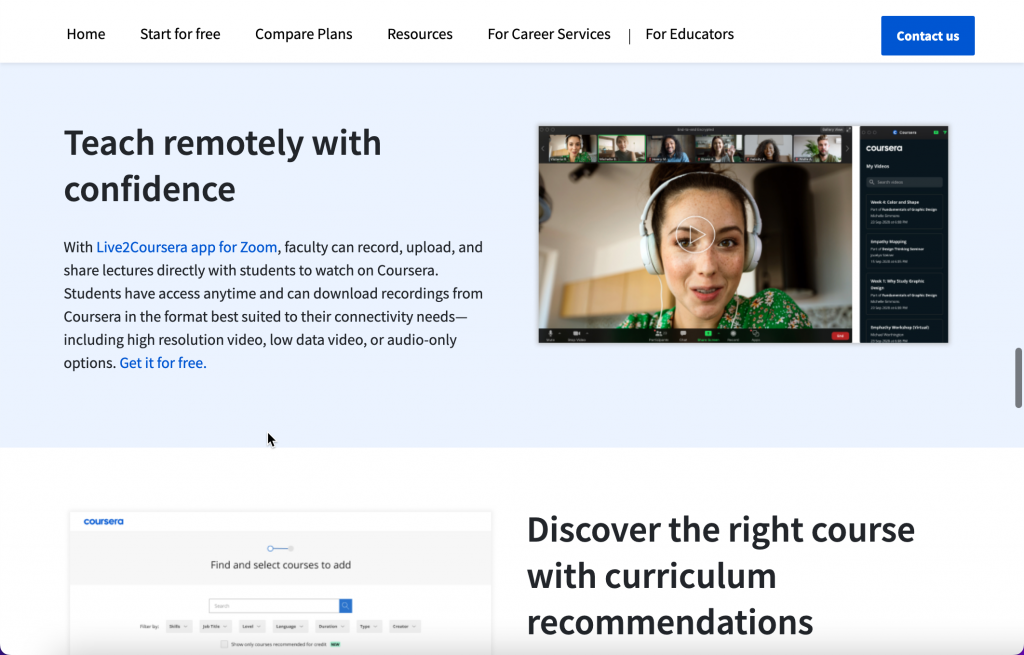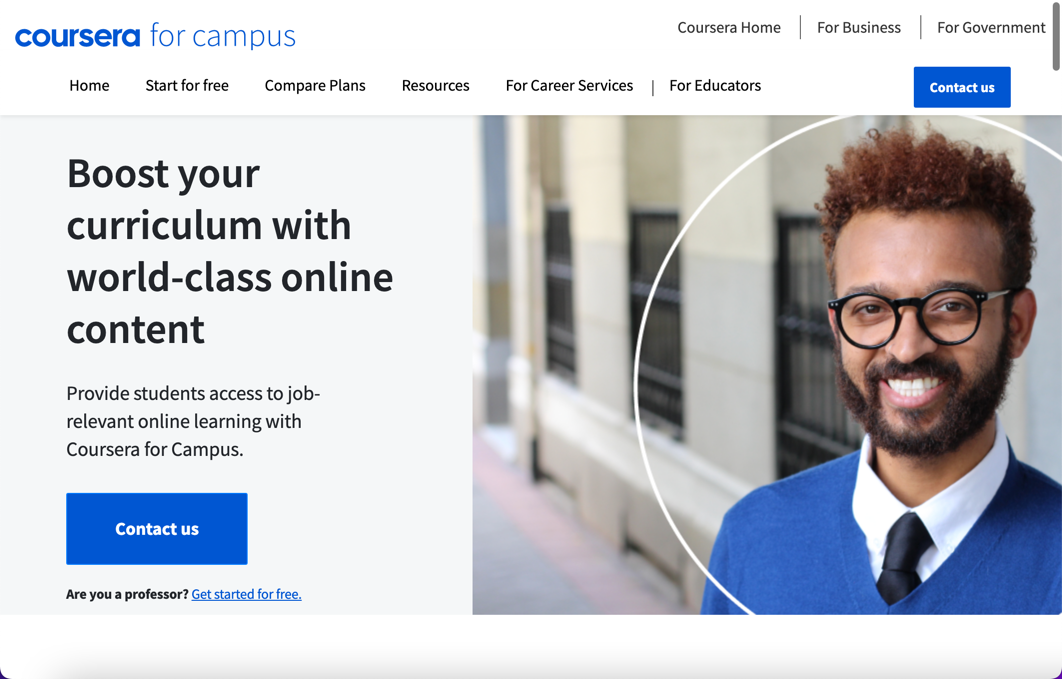Coursera is an online learning platform and resource offering courses to a global audience for education, business, and government professionals. According to the main website, Coursera collaborates with leading universities and businesses to offer 5,000 plus courses, degrees, and certificates for these three target groups. What seems to set them apart from LinkedIn Learning are the variety of plan offerings available to choose from depending on the need. They identify three major categories of need—career focus, education focus, or business focused. Courses are available to individuals and teams. In addition, a select number of free courses are available. I was surprised to see a few familiar universities like Yale University, Stanford University, and the University of Michigan offering free courses. The ability to track and measure skill development is also a valuable quality for the online learning resource.

Career focused options would be useful for individuals who may currently have a career and want to upskill or want to learn a new skill online at their own pace. Certifications seem to be the primary push for this plan which starts at $39/month. This format is good for learning at your own pace. Other nice features include resources and support to help build your resume and help with the job search process.
Coursera also offers team or enterprise plans for businesses and organizations including universities and governments who need training or skill development for employees. Within this plan they claim to offer world-class content from a number of leading universities. A Team plan covers 5-125 users at $399 per user billed annually. Enterprise plans are for more than 125 users and need to contact sales for pricing.

Coursera for Campus is the educational plan for this online learning resource targeted to universities. It offers content and learning experiences that can be integrated into other courses. There is a strong focus on career motivation and job-based learning, cutting-edge curricula, and guided projects. All these components can stand alone or be integrated into other courses. Basic and institution plans are available under the education umbrella. The basic plan is free for universities and colleges and does not offer the quantity of content types that the institution plan offers. However, it does offer access to the guided projects, assessments, and quizzes which may be a valuable addition for faculty to use as a means to quickly enhance an existing course or provide a relevant activity in a pinch. Unfortunately, the free plan is not as secure. It does not offer single sign-on, API integrations, or LMS integrations with Blackboard Learn, Moodle, Canvas, and D2L. The institution plan does offer these things at an additional cost. Custom pricing is available for universities and colleges through a sales representative. The Live2Coursera app for Zoom is a unique feature that can be integrated so faculty can expand the use of this Coursera by uploading videos and other created content to it.

The future of Coursera and Coursera-type learning resources is good in my opinion. Designing and developing quality courses requires time and testing that may not always be doable under tight project constraints and budgets in a university or college setting. I see platforms like this expanding because of the time saving product offerings. In addition, it could also be a great platform to test out new technologies in a course and gather important research and assessment data for future development of courses. The open source format offers affordable options for education, the ability to remix and reuse content in practical ways, and encourages lifelong learning because of its accessibility.
